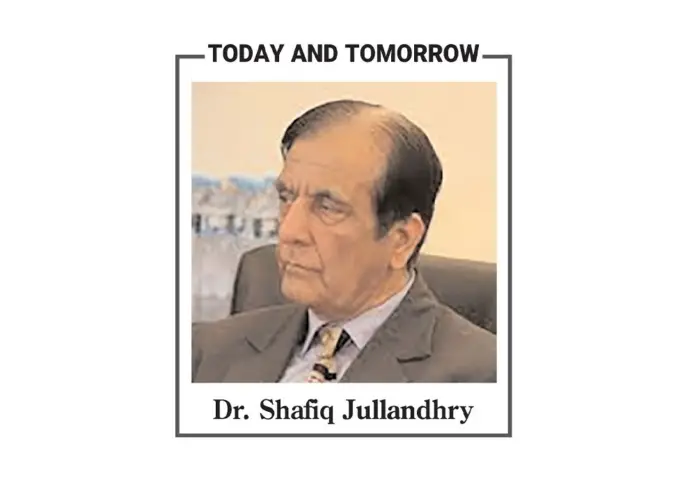There are some Urdu sayings that I understood only by experience. I mentioned two such incidents in my last column. Here, I say two more such statements. One proverb in Urdu is “Din ko taray nazar aa jaana.” I knew its meaning as doing something intensive or experiencing a high degree of physical torture. But during my college days, I faced a situation when I realized that you see stars in daylight in such a position. The second proverb is “Khushi say zameen par paon na tikna” (in pleasure and joy, feel as if you are not touching the earth beneath your feet). It was a winter evening when we played volleyball in front of our hostel building. On the other side, there was a hockey ground where our college team was playing a match with the team of Crescent Textile Mills.
Suddenly, there arose a growl and grumbling noise. There was a fight between the hockey players. I saw that our hostel fellow Saleem wearing a blue pullover, was encircled by the outsider team’s members, and they were beating him badly with their hockey sticks. I raced to the location, reached the spot and jumped in the circle. With a loud voice, I raised my hands and started yelling, “please stop it. Please stop it.” With that, I pulled Saleem out of their circle. They were not listening to me but immediately noticed what I was doing. All of a sudden six-seven sticks were showered on my head with the statement, “Who are you?”
Luckily, all of those sticks collided with each other, and my head was safe, but one of the sticks hit the bone of my right leg with bullet speed. That was the moment when I experienced stars in the daylight. I couldn’t move from the place for a minute but felt an awful pain in the leg. I saw the silver-white light splinters, one to two feet vast galaxy, coming out of my eyes and flying towards the sky. Mr. Saleem was grateful to me for saving his life, but the pain in my leg prolonged for months. Then my leg healed, but after seven-eight years of the incident, this pain came again for some months to recall that ‘beautiful’ sight of stars in the daylight. Come to the pleasure and joy that doesn’t let you feel on the earth.
I think one of its experiences was mentioned in the previous column when my first story was published on a children’s monthly. It was a sort of immature experience, but a mature experience was during those days of the decade of eighties when I was punctual in my prayers. It was a soothing experience of satisfaction, contentedness, fearlessness, and tranquility. During these days, I was not praying for anything; I was asking my God only for the longevity of this condition of mind/soul. This period didn’t go beyond a period of two-three weeks. But I can say that this was the true happiness which lets you come out of all the needs.
You want nothing from the world. You feel delighted and wonder about other people, their greed, and meaningless ambitions in which they have been enslaved. You feel sorry for the people running after temporary gains and who are indifferent to the ever-lasting benefits.
Similarly, I experienced the saying ‘tears of happiness’ on another occasion. My youngest daughter was 10 years old when she was admitted to the hospital for an endoscopy in an emergency. I was distraught on this occasion. After shifting many rooms and going through many tests and inspections by many doctors, an endoscopy was suggested. Before that, she had to stay in the Intensive Care Unit (ICU). When she was taken there, some pipes were inserted in her belly through the nostrils, and she was asleep. ICU is a restricted area, and one can’t visit it repeatedly, but I was approaching this unit frequently, so my daughter may see me there and be satisfied.
I remained sitting outside on a bench with my wife. But I couldn’t see her awake. These two to three days was an adamant time in my life. After all, I thought, why did God give that type of trouble to the children? Early in the morning, a nurse came out of ICU and informed us that patient was awake now. I met my daughter and asked her about her health. She said: “Daddy! The pipes have been ejected from my nostrils, I have taken my breakfast, and we will go back home. This was when I sighed with relief, and there was a flood of tears in my eyes. The ‘tears of happiness.’ This was how I experienced these tears on this special occasion. There are some more critical and mysterious events in my life; I will continue writing about them carefully in my coming columns and hope this will help conclude some meaningful results.







